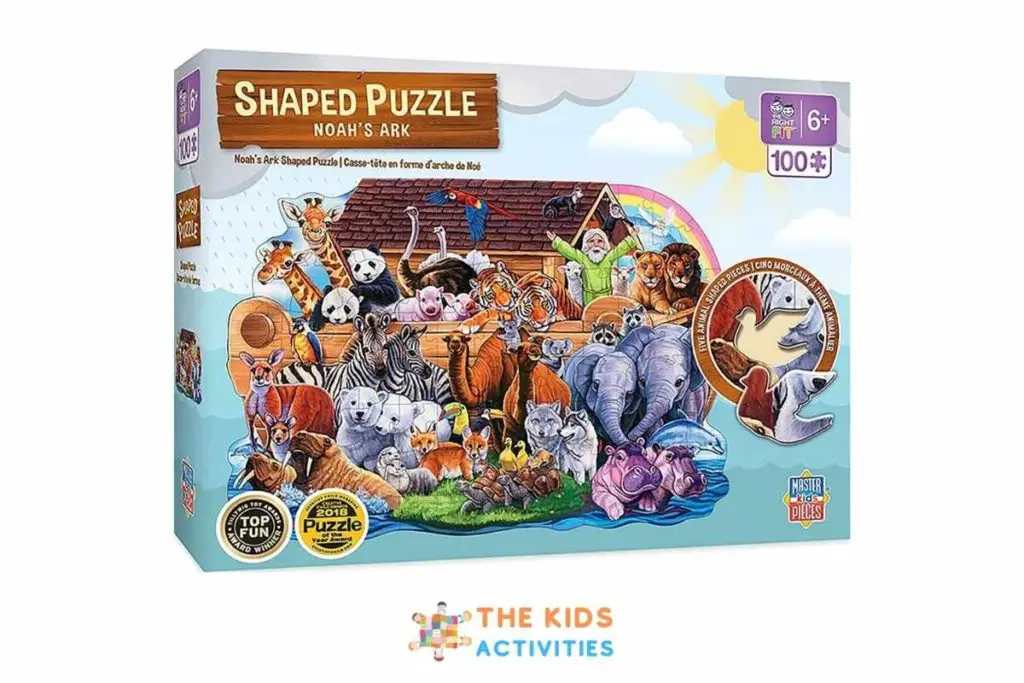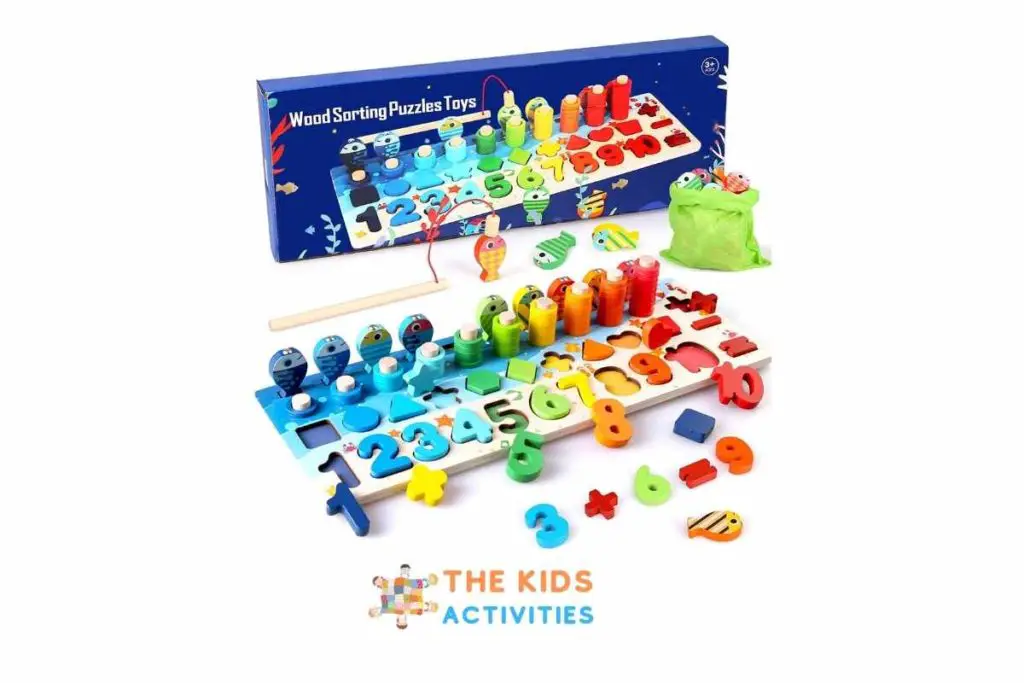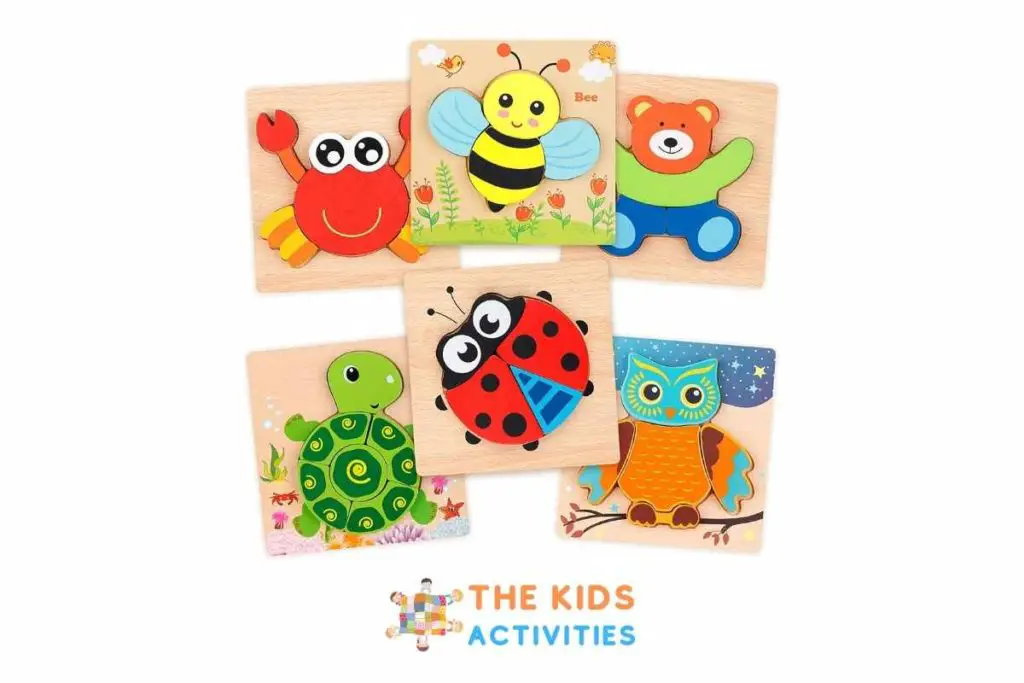Best Jigsaw Puzzles For 5-Year-Olds?
Jigsaw puzzles are a great way for 5-year-olds to work on their problem solving and fine motor skills. They also help with pattern recognition and spatial awareness. Look for puzzles with large, chunky pieces that are easy for little hands to grasp. And be sure to choose a puzzle with a fun, age-appropriate theme.
Jigsaw puzzles are a great way for kids to develop their fine motor skills and problem-solving abilities. If you’re looking for the best jigsaw puzzles for 5-year-olds, we’ve got you covered. Our selection of puzzles features themes that are sure to appeal to kids, including animals, nature scenes, and more. With just the right amount of challenge, these puzzles are perfect for little ones who are just starting to put puzzles together.
How Many Puzzle Pieces Should A 5-Year-Old Have?
There is no definitive answer to this question as it depends on the child’s level of development and the difficulty of the puzzle. Generally speaking, a 5-year-old should be able to complete a puzzle with between 20 and 30 pieces. If the puzzle is too difficult, the child may become frustrated and lose interest. If it is too easy, the child may become bored. Ultimately, it is up to the parent or caregiver to gauge the child’s abilities and choose a puzzle that is appropriately challenging.
To be honest, most experts agree that it’s best to wait until your child is 6 years old. Here’s why: Kids from ages 3 – to 5 tend to put puzzles together in a very random way which makes it harder for them to learn how pieces of a puzzle fit together. Puzzles from this age can also have more than 500 pieces, which is too many for a young child and can take longer to put together than the child wants!
What Is A Good Puzzle For A 5-Year-Old?
A good puzzle for a 5-year-old is a puzzle that is not too difficult but still challenging enough to be fun. It should be age-appropriate and have colorful, and interesting There are many different kinds of puzzles, solvable in a number of ways. It all depends on the age and ability level of your 5-year-old child. Most children around 3 years old will do well with puzzles that involve finding matching pictures and putting them together, as well as
- “Peek-a-boo”
type puzzles with simple pictures like farm animals or vehicles. pieces.
How Do Jigsaw Puzzles Help Children’s Development?
Jigsaw puzzles are a great way to help children develop their problem-solving skills. They learn to look at a problem and figure out how to solve it. This is a great skill to have in life.
Jigsaw puzzles are important for children’s growth and development in many ways. When a child completes a jigsaw puzzle, they gain confidence that they can accomplish something that seems difficult at first. Puzzles give kids patience because it takes them a long time to complete the puzzle. They also exercise their minds as they turn pieces around and around trying to find where they go.
What does it mean if your child is good at puzzles?
If your child is good at puzzles, it means they have a knack for solving problems and figuring out how things work. They likely enjoy challenges and are always up for a good mental puzzle. As a parent, you can encourage their love of learning by providing them with plenty of opportunities to problem-solve, both through puzzles and in everyday life.
How do puzzles help children?
Puzzles help children’s cognitive development by teaching them problem-solving skills.
Puzzles also help children develop fine motor skills and hand-eye coordination.
Puzzles play an important role in the development of children. They help them to learn how to solve problems and develop their imagination. Children also need a variety of different toys so that they can experience different activities and use their brains more effectively. Puzzles are a great way for children to be entertained with new ideas and get excited about solving problems.
What does being good at jigsaw puzzles mean?
Being good at jigsaw puzzles means being able to put together a puzzle quickly and efficiently.
Being good at jigsaw puzzles doesn’t mean you’re talented or gifted. It just means you started early and have lots of patience. As with anything practice makes perfect and with jigsaw puzzles, the more time and effort you put into completing a puzzle, the better you become at it. And as your skills improve so does your interest in harder puzzles.
Do jigsaw puzzles make you smarter?
According to research, yes. Jigsaw puzzles have been shown to increase memory power and sharpness of thinking, as well as improve focus and attention.
Some people believe that doing jigsaw puzzles can help to make you smarter. This is because puzzles can help to improve your problem-solving skills and memory. Additionally, puzzles can help to increase your concentration and focus. So, if you are looking for a way to boost your brainpower, then give jigsaw puzzles a try!
Do jigsaw puzzles make you smarter? It seems like a silly question and one that has no definite answer. However, many believe they do and there are studies that back this up. This is a fascinating topic though, so let’s dive into it!
How do I choose a jigsaw puzzle?
There are a few things to keep in mind when choosing a jigsaw puzzle. The first is the size of the puzzle. If you are new to jigsaw puzzles, you may want to start with a smaller puzzle with fewer pieces. As you become more experienced, you can move on to larger puzzles with more pieces. The second thing to consider is the level of difficulty. There are puzzles with different levels of difficulty, so you can choose one that is appropriate for your skill level. The last thing to keep in mind is the theme of the puzzle. There are many different themes to choose from, so you can find one that interests you.
What do jigsaw puzzles teach?
Jigsaw puzzles teach problem-solving, planning, and perseverance. They also help to develop fine motor skills and eye-hand coordination.
Jigsaw puzzles are an ideal way to learn about shapes, colors, and patterns. They also help teach shape matching, logic, and problem-solving. Jigsaw puzzles can be educational for children, teens, and adults by teaching them how to follow instructions when building the puzzle, build simple 3-D shapes, and recognize differences between objects of different shapes and sizes.
How is a child’s development like a jigsaw puzzle?
A child’s development is like a jigsaw puzzle in that it is a gradual process. The pieces of the puzzle come together over time, and each piece is essential to the final product. Just as a child needs all the pieces of a puzzle to develop properly, so too do they need all the pieces of their development.
Children’s development is like a jigsaw puzzle. It’s a lot of fun, but it can be difficult to get started at times. There are so many differently shaped pieces that need to fit together perfectly for the puzzle to come outright. Some pieces may be missing or broken and there may be multiple copies of some of them. This can make the process slow going at times. But as long as you take things slowly, check each piece carefully, and put it into place one by one, your child will come out just as they should when they’re all done


